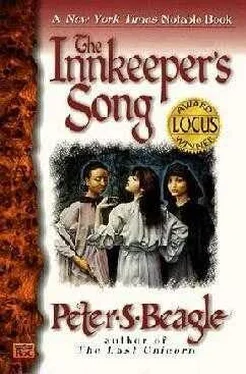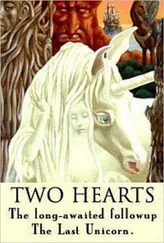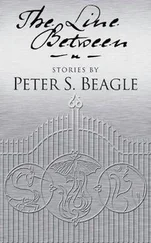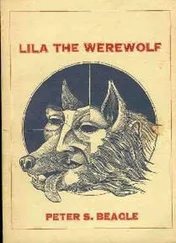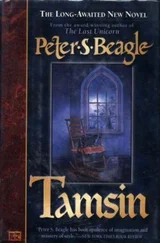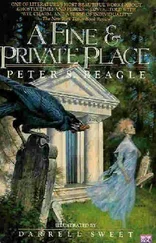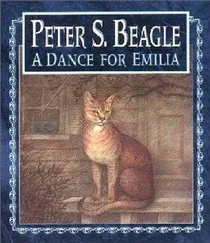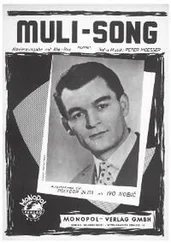Peter Beagle - Innkeeper's Song
Здесь есть возможность читать онлайн «Peter Beagle - Innkeeper's Song» весь текст электронной книги совершенно бесплатно (целиком полную версию без сокращений). В некоторых случаях можно слушать аудио, скачать через торрент в формате fb2 и присутствует краткое содержание. Год выпуска: 1993, ISBN: 1993, Издательство: ROC, Жанр: Фэнтези, на английском языке. Описание произведения, (предисловие) а так же отзывы посетителей доступны на портале библиотеки ЛибКат.
- Название:Innkeeper's Song
- Автор:
- Издательство:ROC
- Жанр:
- Год:1993
- ISBN:0-451-45288-7
- Рейтинг книги:5 / 5. Голосов: 1
-
Избранное:Добавить в избранное
- Отзывы:
-
Ваша оценка:
- 100
- 1
- 2
- 3
- 4
- 5
Innkeeper's Song: краткое содержание, описание и аннотация
Предлагаем к чтению аннотацию, описание, краткое содержание или предисловие (зависит от того, что написал сам автор книги «Innkeeper's Song»). Если вы не нашли необходимую информацию о книге — напишите в комментариях, мы постараемся отыскать её.
Innkeeper's Song — читать онлайн бесплатно полную книгу (весь текст) целиком
Ниже представлен текст книги, разбитый по страницам. Система сохранения места последней прочитанной страницы, позволяет с удобством читать онлайн бесплатно книгу «Innkeeper's Song», без необходимости каждый раз заново искать на чём Вы остановились. Поставьте закладку, и сможете в любой момент перейти на страницу, на которой закончили чтение.
Интервал:
Закладка:
“That was long ago,” I said back to her, “and the entire inn has been shriven and cleansed and shriven again since then.” Nor did I say it as obsequiously as I might have, thinking about the cost of those whining, shrilling priests. Took me a good two years to get the stink of all their rackety little gods out of the drapes and bedsheets. And if I had had the sense of a bedbug, I could likely have gotten rid of those women then, standing on my indignation and injury—but no, I said I was a stubborn man and it takes me in strange ways sometimes. I told them, “You can have my own room, if it pleases you. I can see that you are ladies accustomed to the best any lodging-house has to offer, and will not mind the higher price. I will sleep here, as I have often done before.”
Silly spite, that last—I dislike the room myself, and would sooner sleep with the potatoes or the firewood. But there, that is what I said. The white one might have spoken again, but the brown woman touched her arm gently, and the black woman said, “That will do, I am sure.” When I looked past her, I saw the boy in the doorway, gaping like a baby bird. I threw a candlestick at him— caught him, too—and chased him down the stairs.
TIKAT
On the ninth day, I began to starve. I had taken far too little food with me. How could I not have, sure as I was of catching up by first sunset and making that black woman give me back my Lukassa? Amazed I am to this day that I even thought to bring a blanket for the chill when we would be riding so happily home together. As long as she lay in the water, she will be frozen to her poor heart . That is all I was thinking, all, for nine days.
And of course I know now that it would have made no difference if I had stopped to steal a dozen horses—as though there were that many in the village—and load them to backbreak with food and water and clothing. For I never caught up with those two women, never drew within half a day’s ride, though my mare broke her own brave heart in trying. They were never closer than the horizon, never larger than my thumb, never any more solid than the chimney smoke from the towns they skirted. Now and then I crossed the remains of a campfire—carefully scattered—so they must have slept sometimes; but whether I rested or galloped all night, they were always far beyond my sight come dawn, and not before midday would I catch the least movement on the side of the furthest hill, the twitch of a shadow among stones so distant that they looked like water across the road. I have never been so lonely.
There’s this about starving, though, it takes your mind off things like loneliness and sorrow. It hurts very much at first, but soon you start to dream, and those are kind dreams, perhaps the sweetest I ever had They weren’t always about food and drink, either, as you’d suppose—most often I was old and home with my girl, children close and my arm so tight around her when the bridge railing broke that she still bore the mark all those years later. I dreamed about my father, too, and my teacher who was his teacher, and I dreamed I was little, sitting in a pile of sawdust and wood shavings, playing with a dead mouse. They were very dear dreams, all of them, and I tried harder and harder not to wake.
I don’t remember when I first noticed the tracks of the second horse. The ground was hard and stony, and growing worse and I often went a day or longer finding nothing but a hoofscratch or two on a displaced pebble But it must have been some little time after the dreams began, because I laughed and cried with pleasure to think that Lukassa would at last have a horse of her own to ride When we were children, she made me promise one day to buy her a real lady’s horse, none of your plough-beasts that might as well be oxen, but some dainty, dancy creature, as far beyond my reach then as now, and likely as useless in our life together as bangles on a hog. But I swore my word to her—so small a request it seemed, when she could have had my eyes for the asking. Seven we were, or eight, and I loved her even then.
If I had been in my right mind, surely I would have wondered where that second horse had come from in this empty country, and whether it truly bore Lukassa or another. A woman who had sung my girl up from the river bottom could summon a horse as easily, like enough; but why now, as far as they had come on the one, and tireless as he plainly was? But by then I was walking as much as riding, hanging on my mare’s sagging neck, pleading with her not to die, to live only a little longer, half a day, half a mile. You couldn’t have told which of us was dragging the other, and I couldn’t have told you, for I was swimming in the air, laughing at jokes the stones told me. Sometimes there were animals—great pale snakes, children with birds’ faces—sometimes not. Sometimes, when the black woman was not looking, Lukassa rode on my shoulders.
On the eleventh day, or the twelfth, or perhaps the fifteenth, my mare died under me. I felt her die, and managed to sprawl clear to keep from being crushed by her bones. If I had been strong enough to bury her, I would have done it; as it was, I tried to eat her, but I lacked even the strength to cut through her hide. So I thanked her, and asked her forgiveness, and the first bird that laid claw on her I fell on and strangled. It tasted like bloody dust, but I sat there beside her, chewing and growling in full sight of the other birds. They left her alone for a while, even after I walked away.
The bird sustained me for two more days, and cleared my mind enough at least to realize where I must be. The Northern Barrens, no desert, but almost as bad. As far as you can see, the land is broken to pieces, everything smashed or split or standing on edge. Here’s a toss of boulders blocking the way, the smallest bulking higher than a man on horseback; here’s a riverbed so long dry there are wrinkled little trees growing up out of it; there, all that tumble and ruin might have been a mountain once, before great claws ripped it down. No road, never so much as a cart track—if you have all your wits about you, you pick your way across this country, praying to the gods’ gods not to break a leg or fall in a hole forever. Starving mad like me, you stagger along singing, peaceful and fearless. I dreamed my death, and it kept me safe.
There was an old man in one of those dreams. He had bright gray eyes and a white mustache, curling into his mouth at the corners, and he wore a faded scarlet coat that might have been a soldier’s. In my dream he came galloping on a black horse, crouched so far forward that his cheek lay almost against the horse’s cheek, and I could hear him whispering to it. For a moment, as they flashed by me, the old man looked straight into my face. In his eyes I saw such laughter as I never expect to see again while I live. It woke me, that laughter, it brought me back to the pain of being about to die alone in the Barrens, without Lukassa, and I fell down weeping and screaming after that old man until I slept again, truly slept, on all fours like a baby. I dreamed that other horses passed, with great hounds riding them.
When I wakened, the sun was dropping low, the sky turning thick and soft, and the least breeze rising. The sleep and the hope of rain made me feel stronger, and I went on until I came to a place where the ground sloped down and in on all sides: not a valley, just a stony dimple with a stagnant pool at the bottom. They were down there, the hounds, and they had taken prey.
There were four of them, Mildasis by their daggers and their short hair. I had only seen Mildasis twice before— they come south but seldom, which is good. They had the old man in the scarlet coat between them and were buffeting him round and round, knocking him savagely from one to the other until his eyes rolled up in his head and he could not stand. Then they kicked him back and forth, like the ragged ball he rolled himself into, all the while cursing him and telling him there were worse pains waiting for a man insanely foolish enough to steal a Mildasi horse. Not that I know two words of Mildasi, but their gestures made things quite clear. The horse in question stood loose nearby, reins hanging, pawing for thistles among the stones. It was a shaggy little black, almost a pony, the kind the Mildasis say they have been breeding for a thousand years. They eat whatever grows, and keep running.
Читать дальшеИнтервал:
Закладка:
Похожие книги на «Innkeeper's Song»
Представляем Вашему вниманию похожие книги на «Innkeeper's Song» списком для выбора. Мы отобрали схожую по названию и смыслу литературу в надежде предоставить читателям больше вариантов отыскать новые, интересные, ещё непрочитанные произведения.
Обсуждение, отзывы о книге «Innkeeper's Song» и просто собственные мнения читателей. Оставьте ваши комментарии, напишите, что Вы думаете о произведении, его смысле или главных героях. Укажите что конкретно понравилось, а что нет, и почему Вы так считаете.
